Ba Dinh Square is a sacred space that every Vietnamese citizen dreams of visiting at least once. It houses some of the most beautiful and meaningful architectural works in the capital and across the country.
Ba Dinh Square is a sacred space in Hanoi, home to some of the most significant architectural works in Vietnam. This article highlights key structures such as the Ho Chi Minh Mausoleum, the National Assembly building, and the Government Office, showcasing their historical and cultural significance as Vietnam commemorates 70 years of Hanoi's liberation.
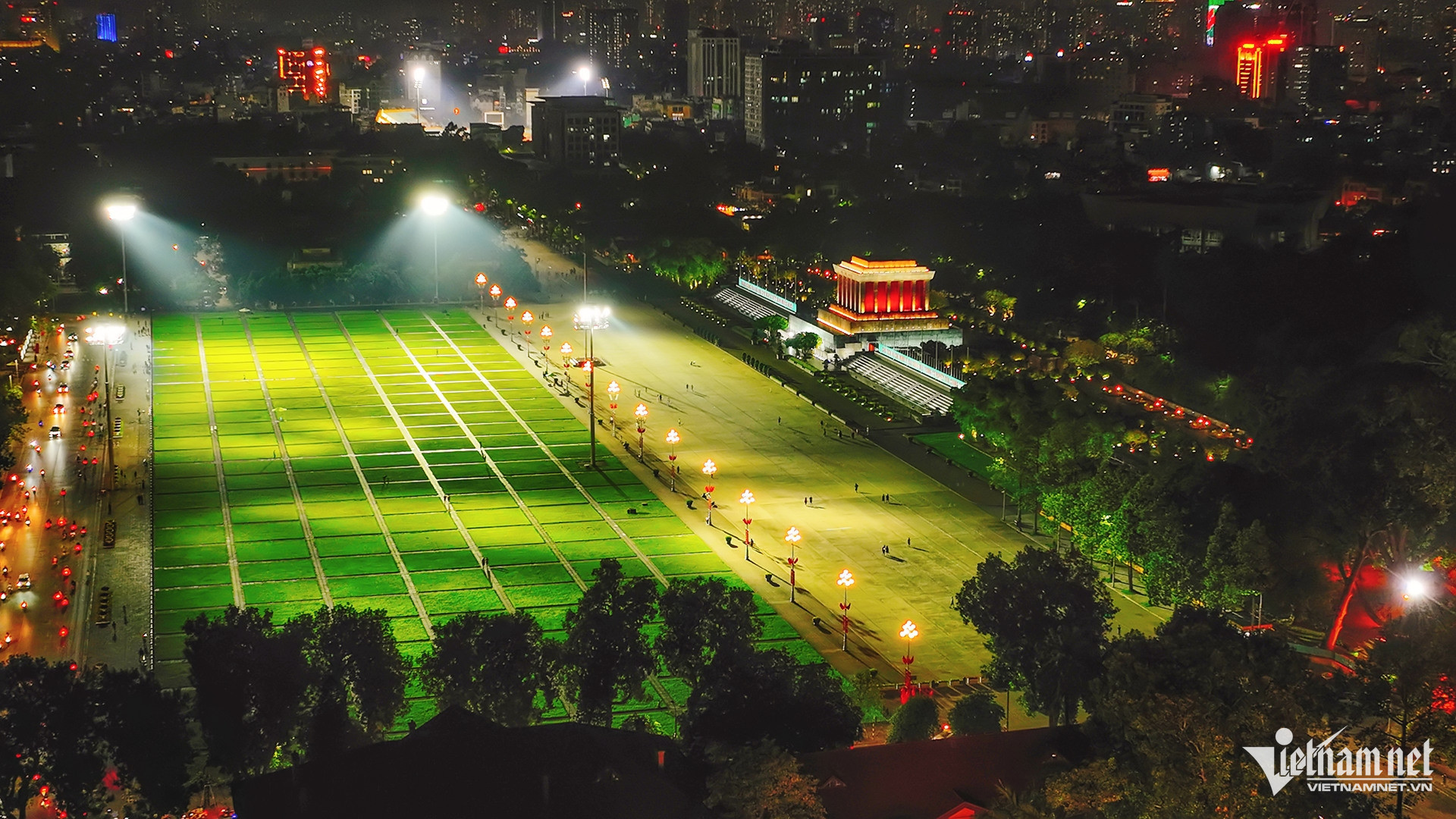
Ba Dinh Square is located west of Hanoi's ancient citadel. Along with preserving and promoting the values of the President's Palace historic site, our Party and State decided to construct the Ho Chi Minh Mausoleum right on Ba Dinh Square.
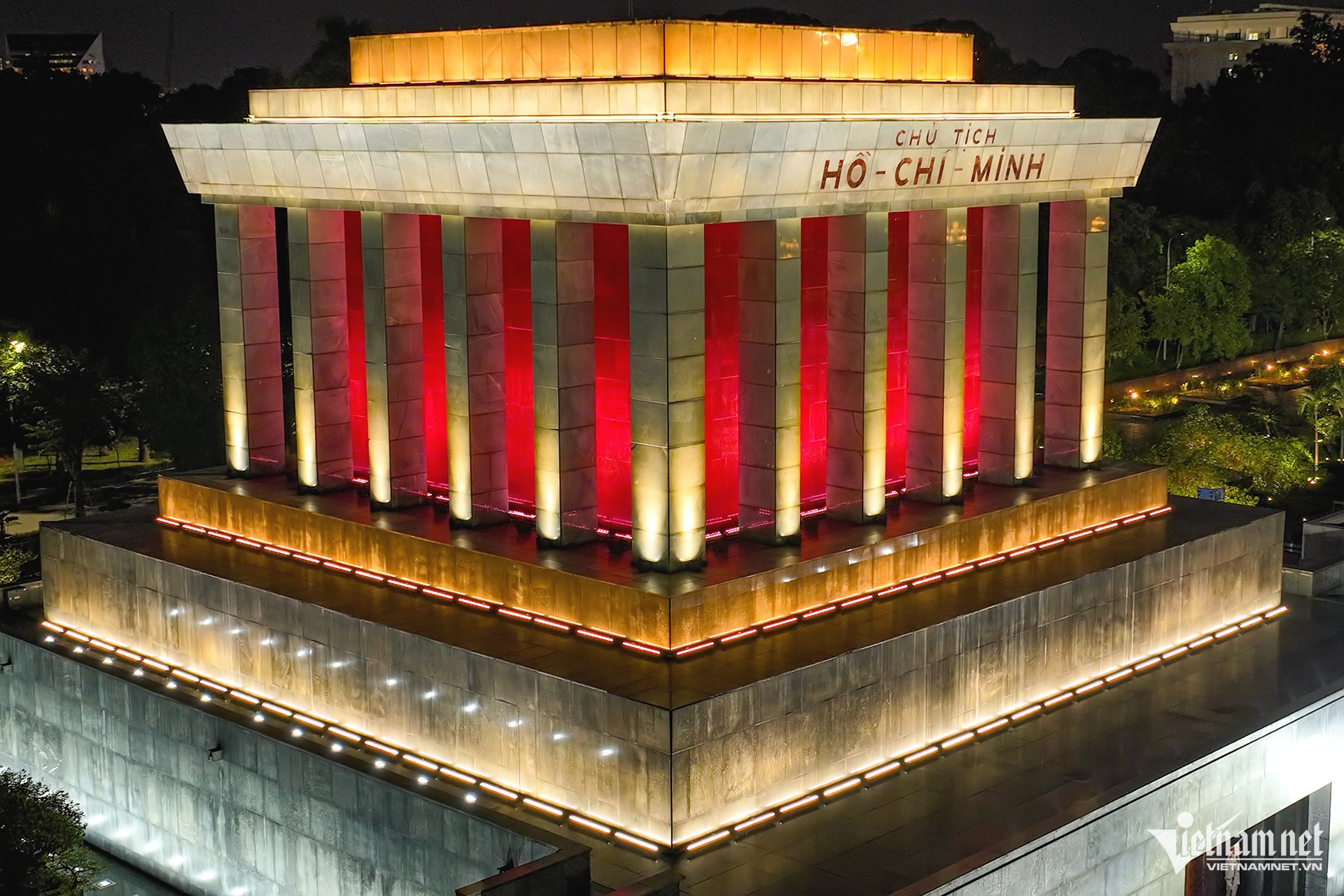
The mausoleum is situated at the site of the former flag platform, where President Ho Chi Minh read the Declaration of Independence.
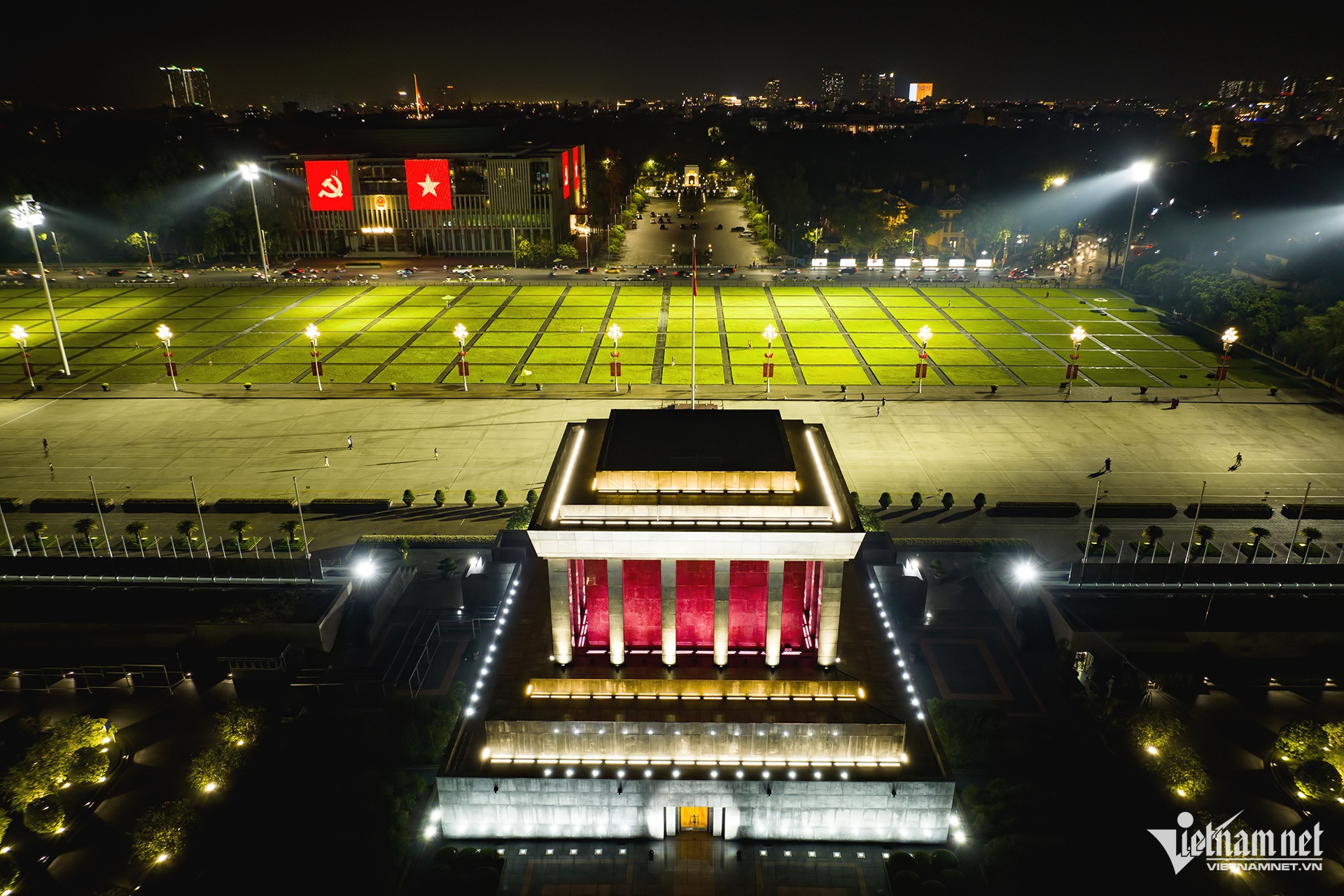
Construction began on September 2, 1973, and the mausoleum was inaugurated on August 29, 1975, coinciding with the 30th anniversary of Vietnam's National Day and the first autumn since the country was completely reunified.
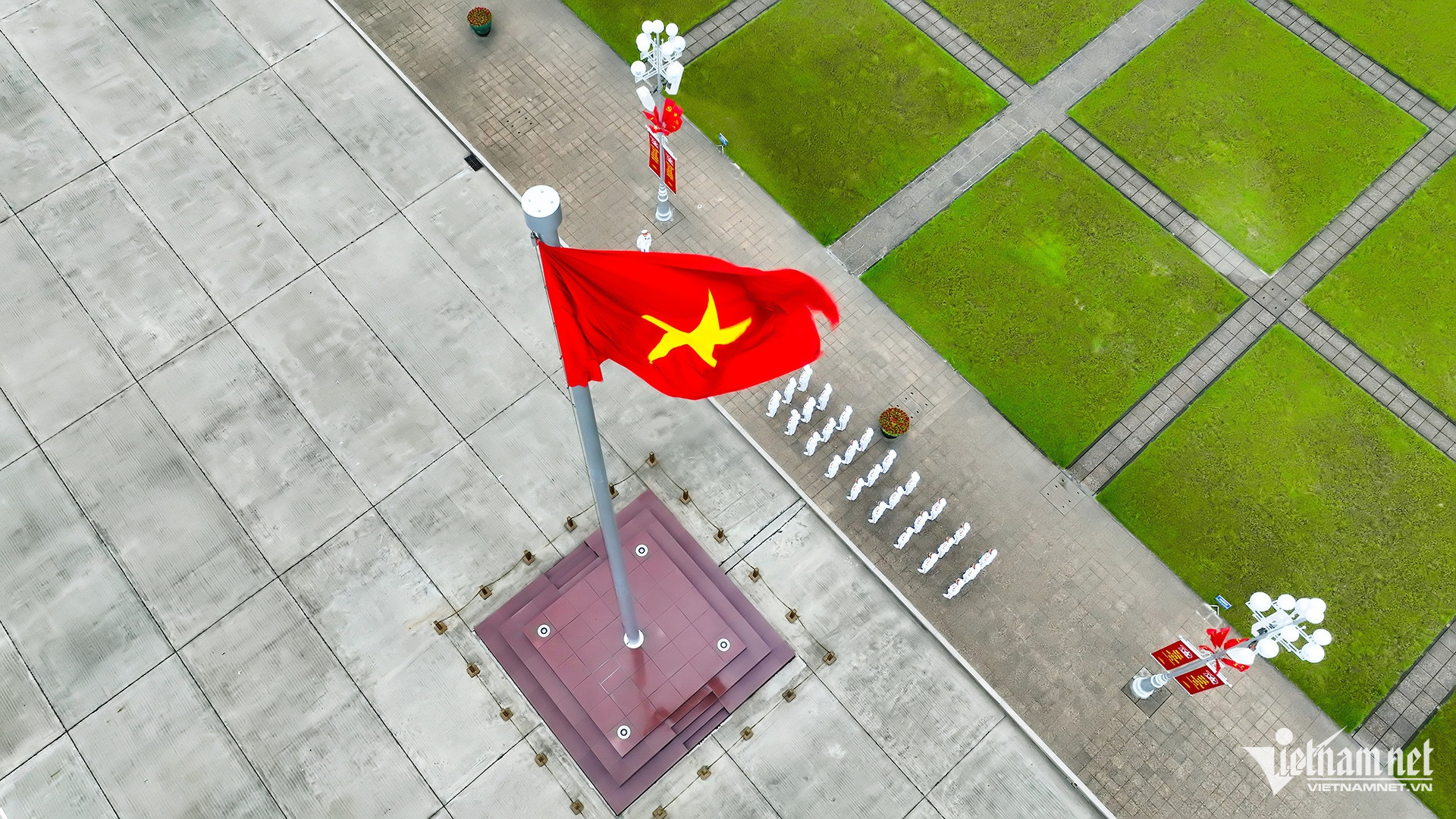
In front of the mausoleum is a large square measuring 320 meters in length and 100 meters in width, accommodating up to 200,000 people. At the center of the square stands a 30-meter flagpole, a sacred space in the capital where flag-raising ceremonies take place every morning at 6am.
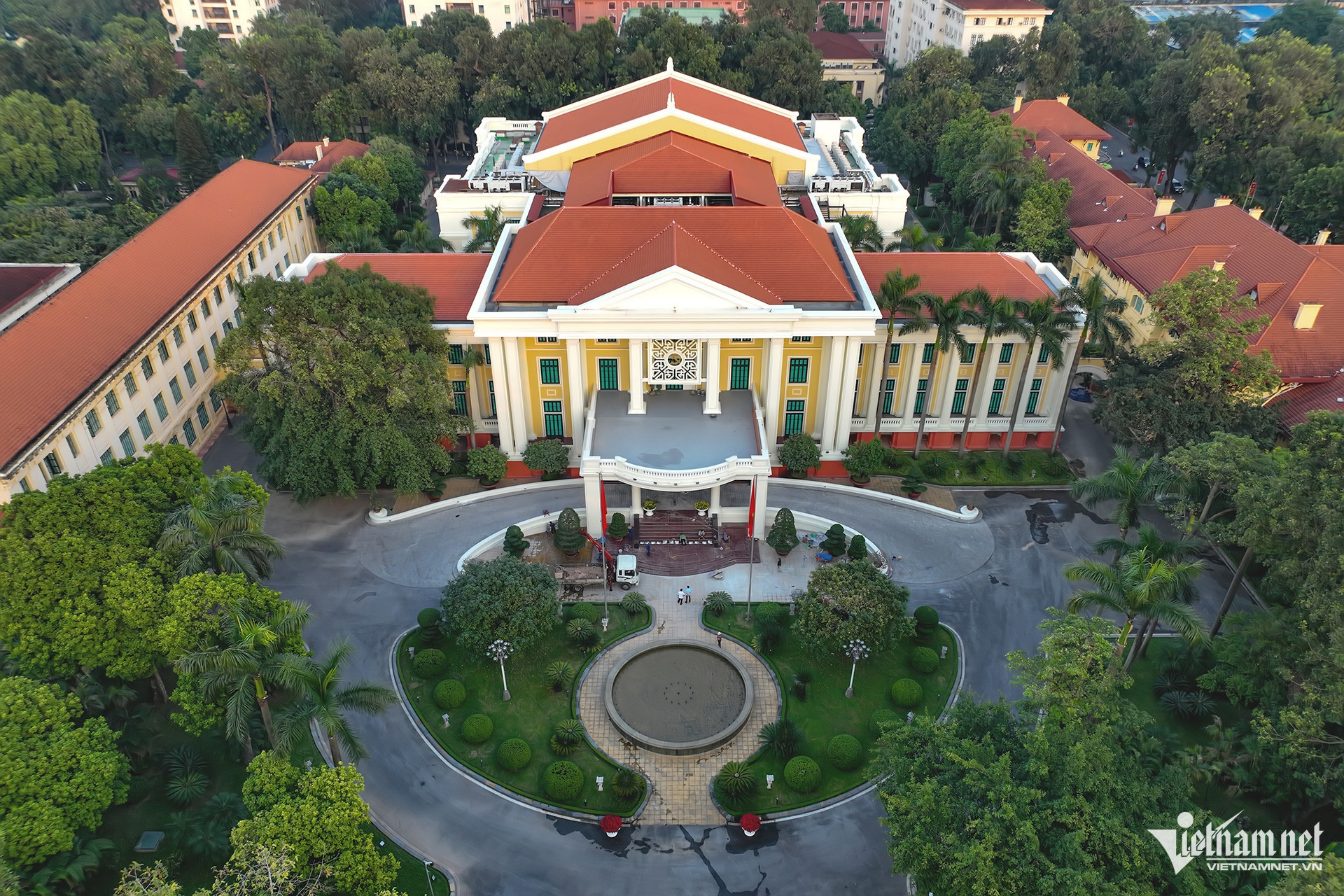
About 300 meters from the Ho Chi Minh Mausoleum is the headquarters of the Central Committee of the Communist Party of Vietnam, located at 1A Hung Vuong. Generations of revolutionary officials have worked here for their entire lives. The office assists the Central Executive Committee of the Communist Party of Vietnam, directly aiding the Politburo and the Secretariat in organizing and managing the Party's leadership work and coordinating activities among the Party's advisory bodies.
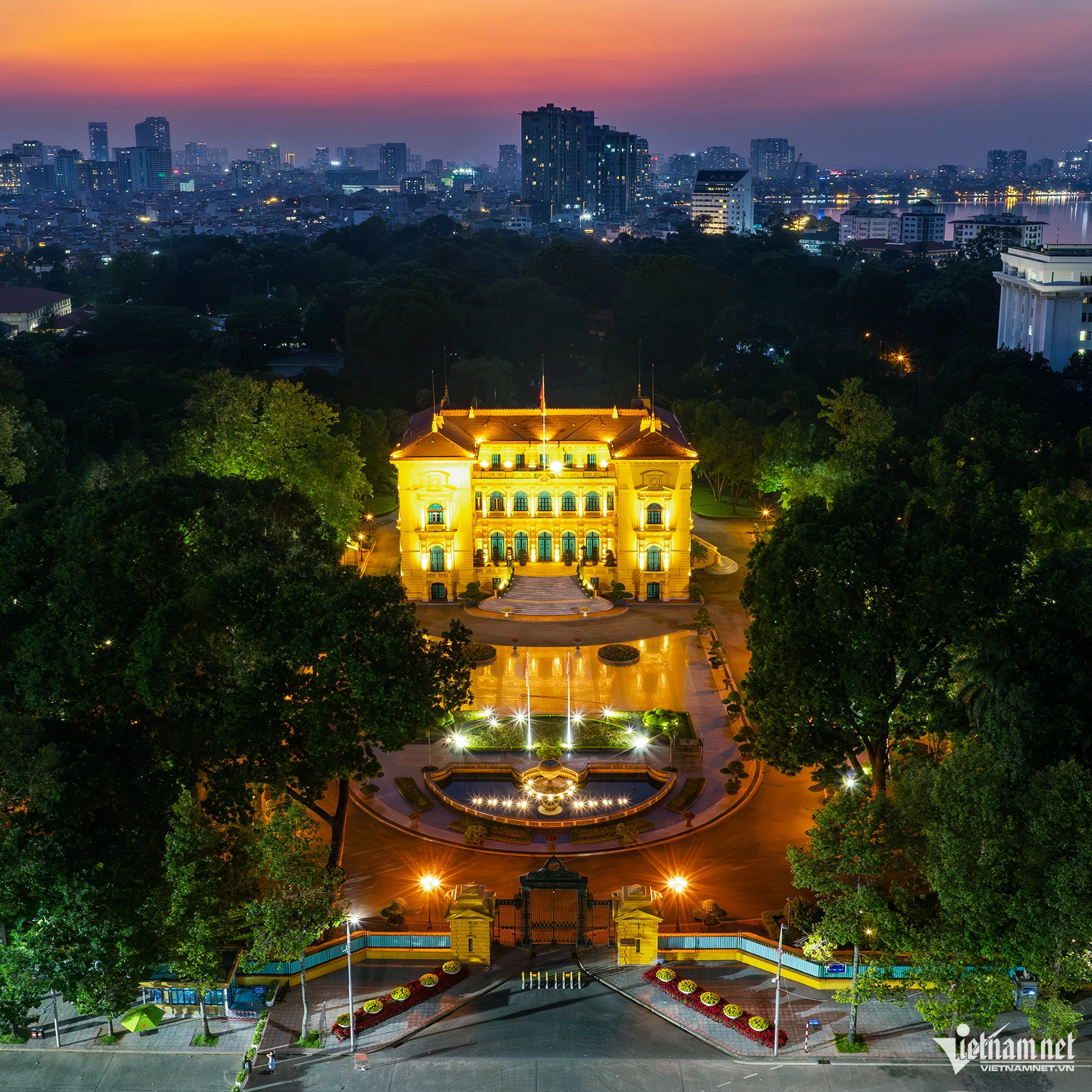
Recently, people and tourists passing along Hung Vuong Street have been impressed by the Presidential Palace's new lighting system, which has been operational since August 26, 2024. With its French architectural design, the new lighting uses soft yellow lights that maintain the color at night while highlighting the intricate details, patterns, and layout of the building.
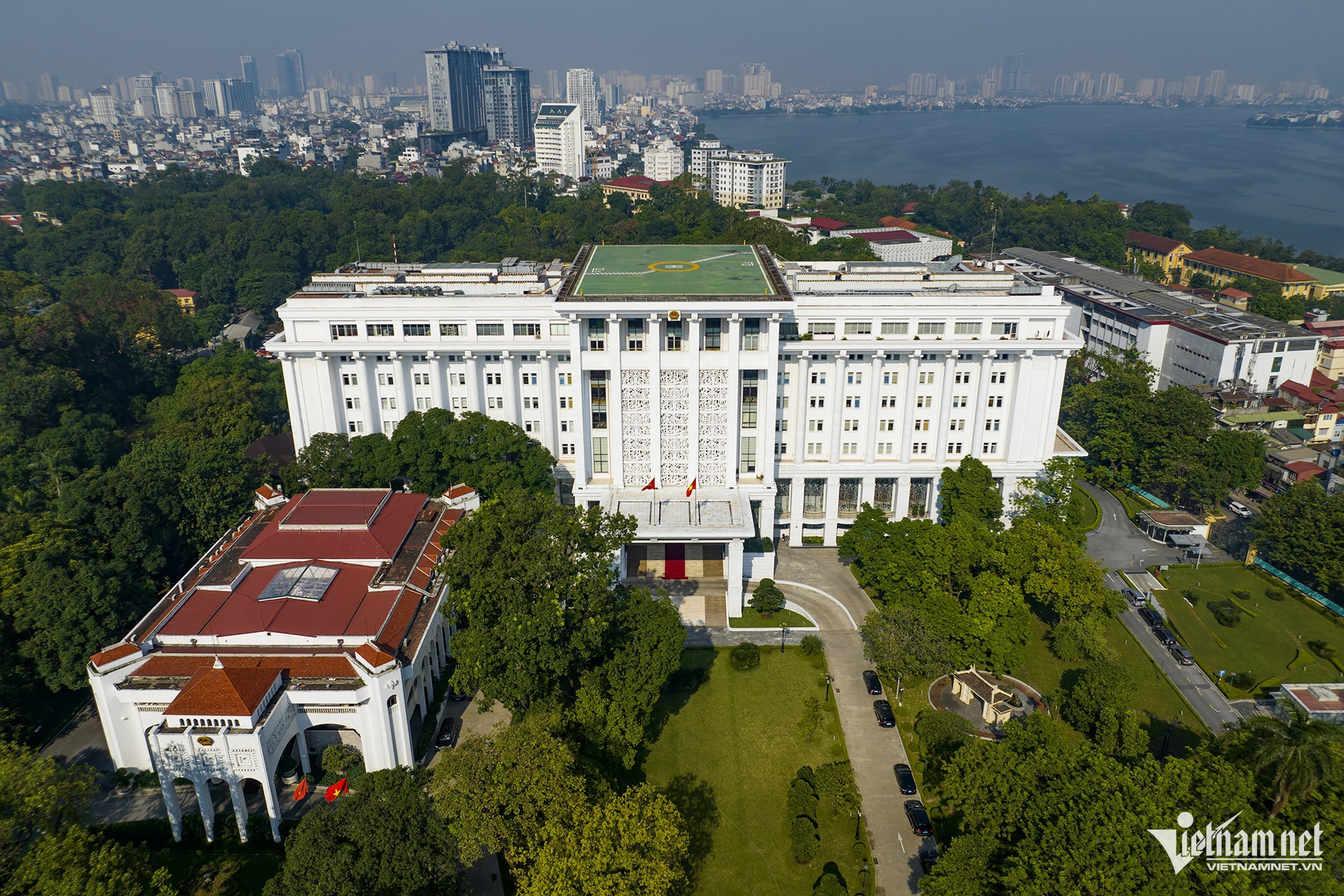
Next to it is the Government Office, a national-level project of special significance. This is where important meetings and activities of the government take place. The building has a total floor area of 25,000 square meters, comprising nine above-ground floors and three basement levels, designed in a neoclassical style.

Adjacent to the Ho Chi Minh Mausoleum and Ba Dinh Square is the National Assembly building, located on Independence Road (Ba Dinh District). The structure is square-shaped, with a circular central meeting room that rises 39 meters, comprising five above-ground floors and three basement levels, with a total floor area of 60,000 square meters.
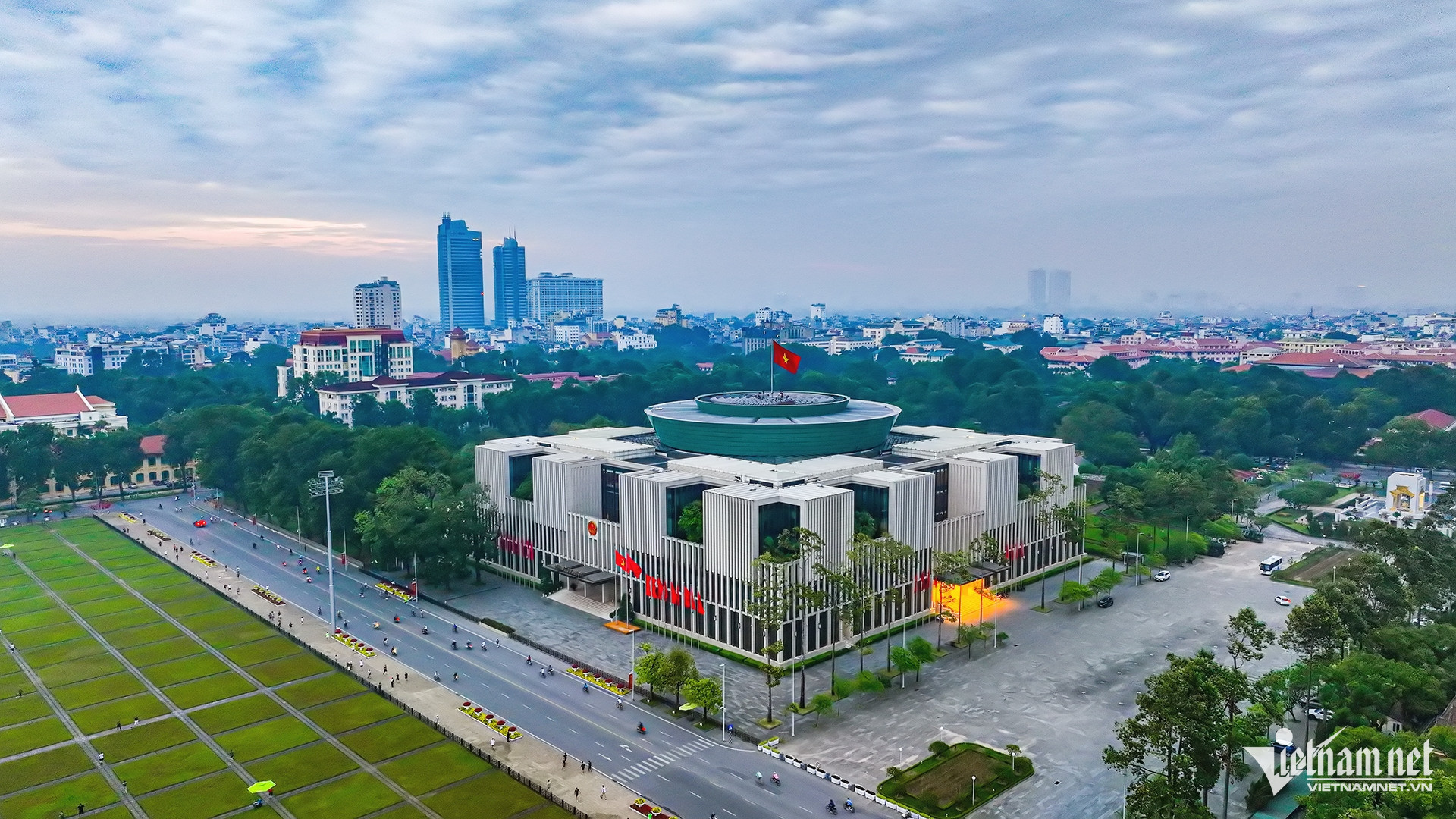
The National Assembly building is recognized as one of the most complex projects that Vietnamese contractors have undertaken, inaugurated in 2014.
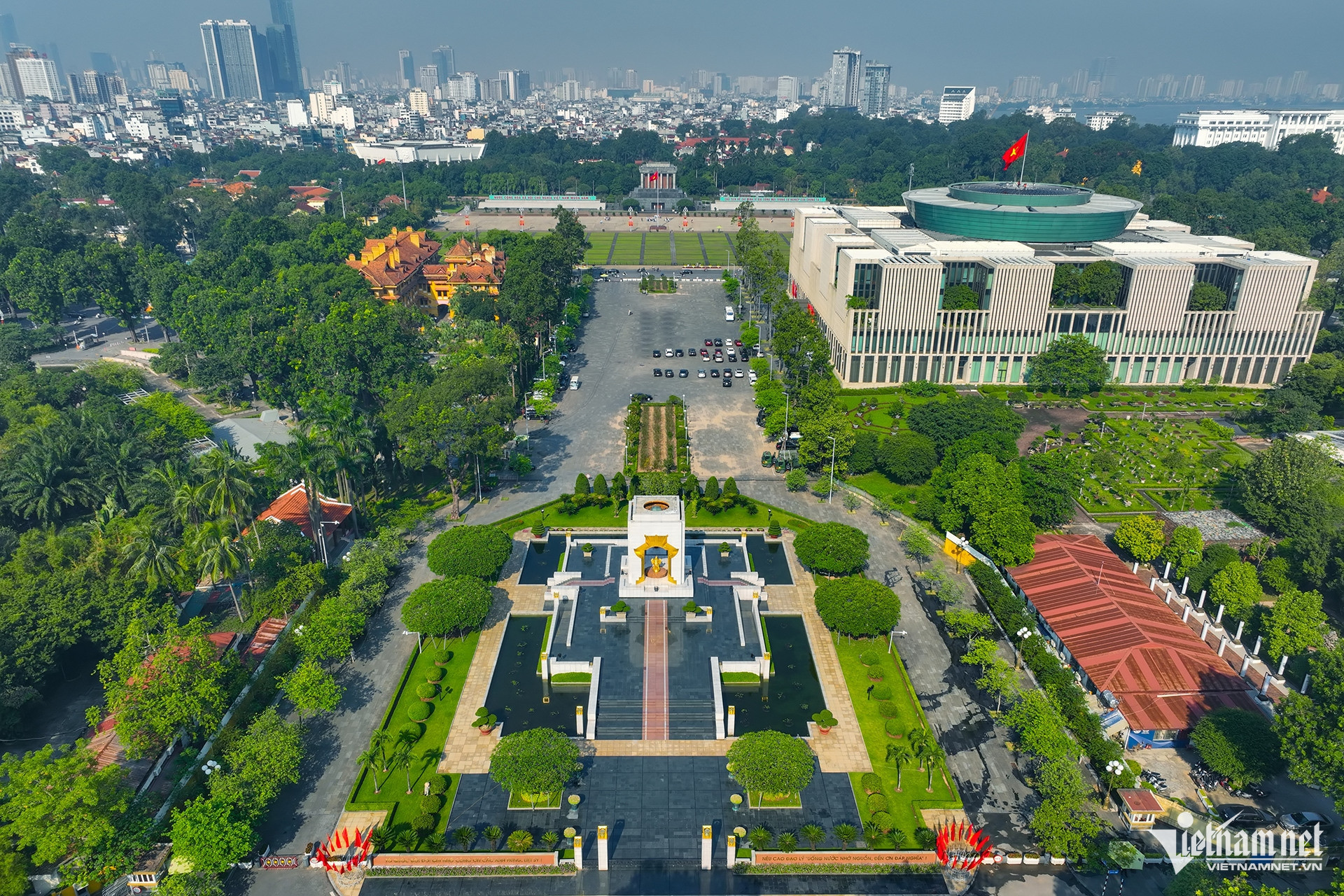
A few hundred meters from Ba Dinh Square is the Monument to Heroes and Martyrs, honoring those who sacrificed for the independence and freedom of the nation. Inaugurated on May 7, 1994, to commemorate the 40th anniversary of the Dien Bien Phu victory, the monument stands 12.6 meters tall within a 12,000-square-meter area.

A 360-degree view of Ba Dinh Square.
Hoang Ha - Pham Hai